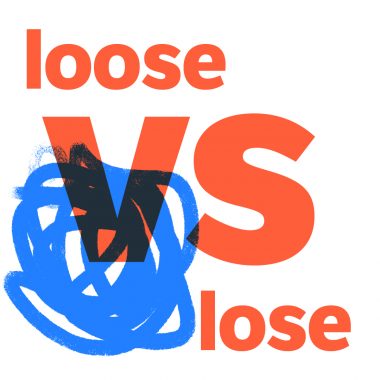Tag Archives: interest-writing
-
What Is A Schwa?
How do I love thee? Let me count the schwas.Not exactly what Elizabeth Barrett Browning wrote in Sonnet 43, but we like it all the same. Why? Because it finally pays tribute to the most frequent vowel sound in English: the schwa. What is the schwa and how does it sound? Simply put, the schwa is a reduced, neutral vowel sound written as an upside-down …
-
What’s The Difference Between “A While” And “Awhile”
What is the difference between a while and awhile? Few word pairs capture the idiosyncrasies (“peculiar characteristics”) of the English language like a while and awhile do. Both of these terms are expressions of time, but one is written with a space while the other is one word. In fact, these two terms represent different parts of speech. The two-word expression a while is a noun phrase, consisting of the article …
-
Everyday Vs. Every Day
What’s the difference between everyday and every day? Do you eat breakfast every day or everyday? The word everyday describes things that are commonplace or ordinary, and it also answers the question “what kind?” For example, in the sentence “Wear your everyday clothes,” the word everyday tells you what kind of clothing to wear. The phrase every day indicates that something happens each day. It also answers the question “when?” …
-
Paramount vs. Tantamount
Turns out, paramount doesn’t have that much to do with mountains. It does, however, describe something that’s of highest importance. Tantamount, on the other hand, refers to something that’s equal to something else. While the two words sound similar, that’s really all they have in common. Paramount Paramount is an adjective meaning “of utmost importance.” It can also describe someone with the highest level of …
-
“Oblivious To” vs. “Oblivious Of”: Are You Using Them Correctly?
Oblivious to and oblivious of can both be used the same way. You can generally pick one based on which sounds better in the context of the sentence. Essentially, they both mean that someone is unaware of something. Synonyms Oblivious to and oblivious of share a meaning with a number of phrases, like ignorant of, unaware of, unconscious of, and blind to. Similarly, it may …
-
“Not Good” vs. “No Good”: When To Use Them Both
Here’s something that’s good to know: No good means something has no use or value, and has no potential of becoming good. Not good means something is bad or undesirable. The correct way to use them isn’t that clear cut. At times, there’s no difference, and they can be used interchangeably. No Good When good is used as a noun, no can quantify or modify …
-
Manor vs. Manner
A manor is a mansion or stately home. A manner is a characteristic way of doing something. These words are homophones (words that sound the same but have different meanings), so it’s easy to mix them up. Manor In the context of a feudal system, manor referred to an estate or territorial unit consisting of a lord’s home and lands. In other words, the area …
-
“Make Peace” With vs. “Come To Terms With”
These two phrases mean almost the same thing, but it can be useful to know the difference. Making peace with something means you “become resolved or reconciled.” Coming to terms with something means you “accept or become resigned” to it. It can also mean to reach an agreement. Make peace with is usually used to talk about humans. Come to terms with is usually used …
-
Loose vs. Lose
Did you lose that sock in the dryer … or loose it?Lose is a verb, while loose is almost always an adjective. They’re often confused because of their similar spelling. When to use lose Lose can only be used as a verb. It describes when you “come to be without something” (e.g., to lose a sock in the laundry) or “to suffer defeat or fail …











